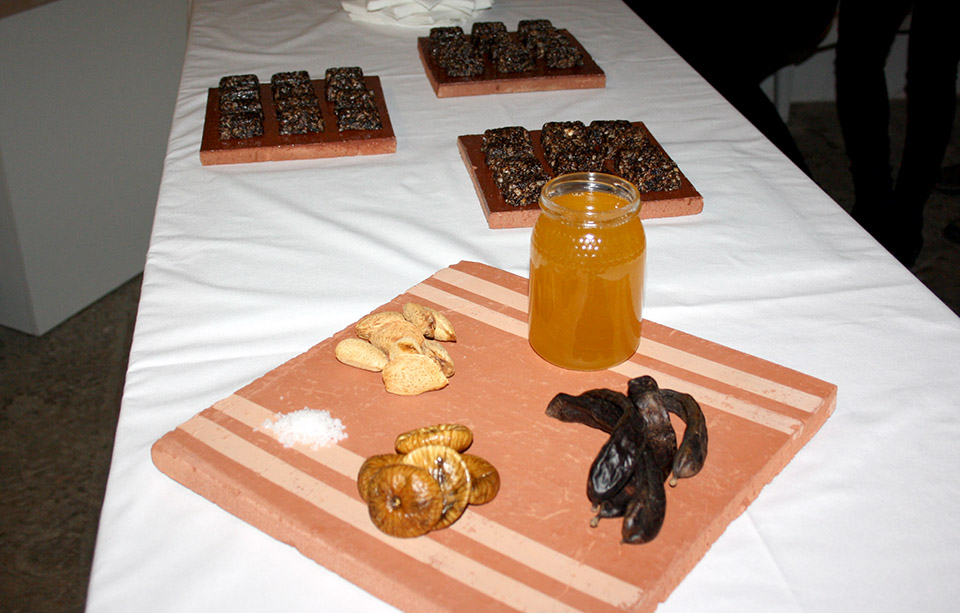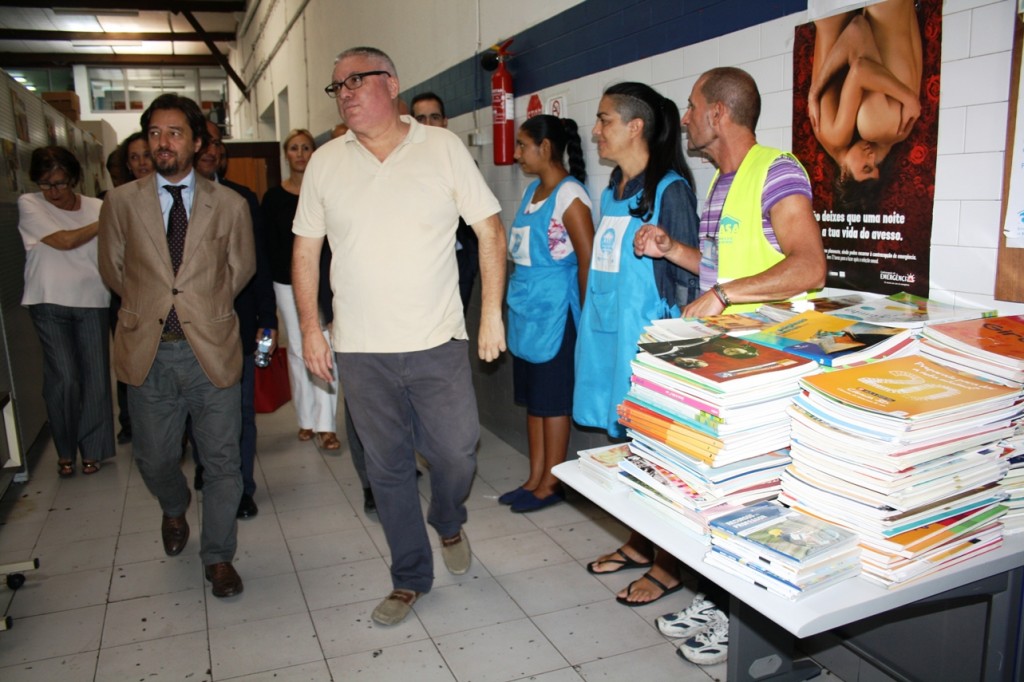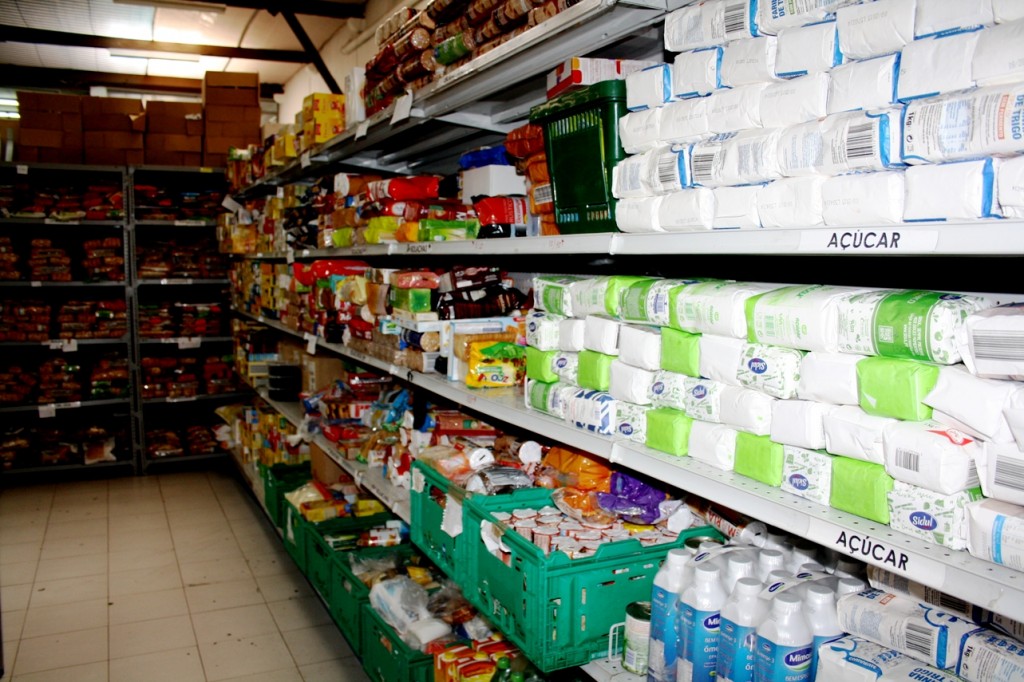 Business initiatives with the characteristics of those born under the Querença Project will be able to benefit from a special support line, made up of community funds, which provides for long grace periods and interest rates that may even be zero percent, or very low, he announced this Wednesday the deputy minister for Regional Development Miguel Poiares Maduro, on the sidelines of a visit he made to the Algarve.
Business initiatives with the characteristics of those born under the Querença Project will be able to benefit from a special support line, made up of community funds, which provides for long grace periods and interest rates that may even be zero percent, or very low, he announced this Wednesday the deputy minister for Regional Development Miguel Poiares Maduro, on the sidelines of a visit he made to the Algarve.
The member of the Government stopped by Querença to find out more details about the intervention project in the territory that has been developed for years in that village in the interior of Loulé, before heading to Faro, to see, in loco, the Solidarity Store of the Support Center for the Homeless (CASA), which stands out for the innovative features it has introduced in supporting the most needy, namely its Solidarity Grocery.
At the end of these visits, Poiares Maduro, who is carrying out a Social Innovation Roadmap at national level, highlighted that the projects he saw in the Algarve are those that can benefit from a new measure introduced in the current community support framework Portugal 2020, which will be “the most ambitious program, perhaps in the whole world, in terms of social innovation”.
The Portugal Inovação Social initiative will be allocated 150 million euros in Portugal 2020 funds «to boost the ecosystem supporting innovation and social entrepreneurship initiatives in Portugal, as well as to create a social investment market that brings in new players. (companies and private investors) to financing and supporting innovation in the social economy”, according to the ministry led by Poiares Maduro.
This budget will serve, not only to leverage “pure and hard” social action projects, which have something innovative, in areas such as training (computer platforms, management support) and growth (consolidation of projects already in progress), but also to allow business initiatives with a strong socio-economic impact to have legs to go.
 An example given by the minister is the energy bar in Querença, an initiative that I had learned about, in detail, hours before. «There are projects that are not profitable, like this one at Mercearia Solidária. But there are others, like Barra de Querença and others that we know there, that have an innovative dimension and social impact, for example, in a low-density territory, which goes beyond the mere immediate economic merit of the project», he said.
An example given by the minister is the energy bar in Querença, an initiative that I had learned about, in detail, hours before. «There are projects that are not profitable, like this one at Mercearia Solidária. But there are others, like Barra de Querença and others that we know there, that have an innovative dimension and social impact, for example, in a low-density territory, which goes beyond the mere immediate economic merit of the project», he said.
"Despite having a dimension of profitability, these initiatives sometimes have more difficulty in finding funding, as they also have an aspect linked to sustainability and the use of endogenous resources," he added. Hence the creation of this “refundable financial instrument”, with very special conditions. "Companies will only have to start paying many years later and will have zero or very low interest rates," he explained.
CASA, on the other hand, will be able to take advantage of other support lines for the two main projects it has in hand: Mercearia Solidária and Tecto Amigo.
In the first case, the initiative fits perfectly, according to Poiares Maduro, in the empowerment aspect of Portugal Inovação Social. This is because it is the intention of the Algarvian IPSS to computerize the card system used in this project.
According to Pedro Cebola, from CASA, this grocery store works very differently from conventional solidarity stores. "Instead of delivering a package of products to our users, we created a credit system and people can use a card and manage the purchase of products according to their specific needs", he explained to Sul Informação.
And there is a little bit of everything in this grocery store, from dry consumer goods, such as pasta and rice, to canned goods of various types, including cold meats, cheeses, bread, dairy products, sugar, biscuits and even ready-to-eat meals. For the rest, everything is arranged like in any grocery store. These goods come from a network that CASA has set up in the region, which includes collection from supermarkets, donations from large supermarkets and hotels, and products from the Algarve's Food Bank Against Hunger.
 At the moment, everything is done manually, using “a cardboard card”, which means that the logistical process takes much longer and requires the constant presence of specialized technicians. With the computerization of the system, “everything would be much easier” and it would even allow the grocery store to operate more days a week, instead of the two (Tuesdays and Thursdays) it currently works on.
At the moment, everything is done manually, using “a cardboard card”, which means that the logistical process takes much longer and requires the constant presence of specialized technicians. With the computerization of the system, “everything would be much easier” and it would even allow the grocery store to operate more days a week, instead of the two (Tuesdays and Thursdays) it currently works on.
The Tecto Amigo is «the great dream of CASA». Here, the focus is on improving the living conditions of needy families, while agreeing with them “a life project” that will allow them to “get back on their feet”. The basis of the project is a housing exchange that will be rented by IPSS Farense and where families in need will be housed temporarily. The idea is to help these households, who will also participate in the rental of the properties, in the percentage that they can, to create conditions that will allow them to become independent from the program, in three years.
In this case, there is another line of the program that the Government includes in Portugal 2020, which aims to consolidate innovative projects. But to be eligible, CASA will have to find a partner who is willing to get involved, with the minister setting the example of the municipality, as a possibility.
“Sometimes co-payment [instead of full support] isn't just a matter of not having funding to secure the entire project. It is a guarantee that there is a local actor who is co-responsible for the success of this project. It is very important that the financing is not all guaranteed by European funds, also for that reason», said Poiares Maduro.


















Comments